Recent Articles
Popular Makes
Body Types
10 Best Cars with Autopilot
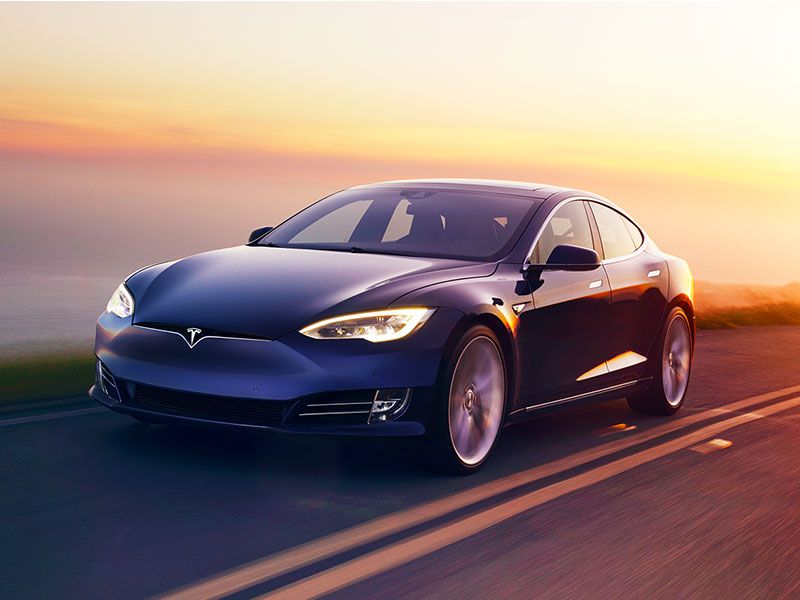
2016 Tesla Model S on road front grille ・ Photo by Tesla
The term “Autopilot" was coined by Tesla to describe the semi-autonomous driving technology in the Model S and Model X. It's a bit of a misnomer that can lead to tragic consequences when used in an automotive context. While Tesla's Autopilot may be the most robust semi-autonomous tech currently offered, the Model S and X cannot safely control the vehicles in a hands-off mode under all conditions. Tesla's attitude toward the term has earned scorn from many sources, including the German government, which has called Autopilot a "considerable traffic hazard."
Nevertheless, there is some good news: Advanced safety technologies like active lane keep, adaptive cruise control, blind-spot detection and autonomous emergency braking are getting better, and they are now offered in wide range of vehicles. Let's take a look at 10 best current cars with these semi-autonomous technologies, which we'll lump under one umbrella and call Autopilot.
Tesla Model S
All Tesla vehicles are sold with the hardware necessary for semi-autonomous driving via Autopilot, and the lane-centering technology sets a high mark. The rear-wheel-drive Tesla Model S 60 is currently the least expensive in the Tesla lineup, with a starting MSRP of $68,000 and a 218-mile range, while the all-wheel-drive 60D starts at $73,000. The Enhanced Autopilot option adds three additional cameras for an additional $5000 (or $6000 after delivery) with a dozen ultrasonic sonar sensors. It provides self-parking capabilities and automatic lane changes. Tesla says it will offer “full self-driving capability” for another $3000 once the technology clears regulatory hurdles “which may vary widely by jurisdiction.” You’ll want to check that with your automotive insurance provider before signing on the bottom line.
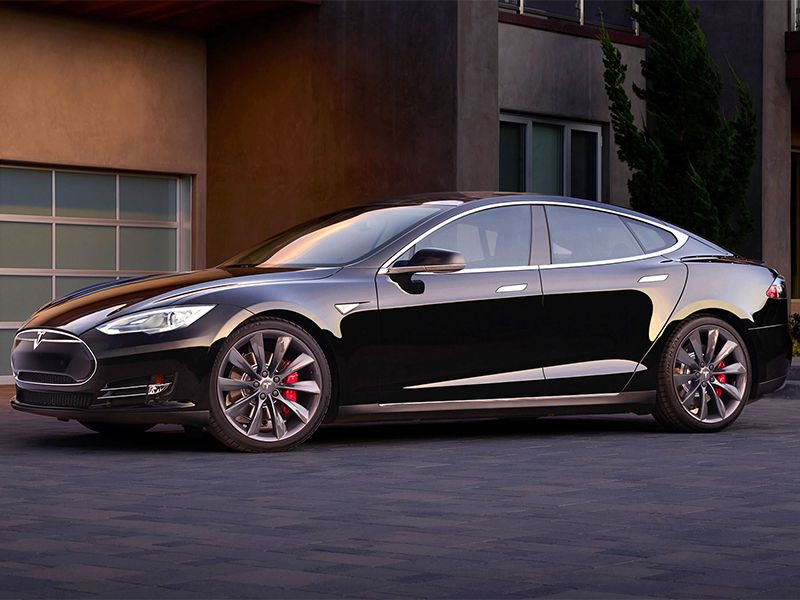
Photo by Tesla
BMW 740i
The 2017 BMW 740i sedan has a starting MSRP of $81,500. You’ll need to opt for a pair of option packages to gain semi-autonomous safety technology in the 740i. The Driver Assistance Plus option package ($1900) includes lane-departure warning, frontal collision warning with city collision mitigation, daytime pedestrian detection, and parking assistant with active park distance control. The Driver Assistance Plus II option package ($1700) adds adaptive cruise control with stop and go, active lane keep with side-collision avoidance, and Traffic Jam Assistant to “provide comfort-enhancing steering assistance” in heavy traffic. The Autobahn option package ($4100) uses a road preview camera to “react proactively to road irregularities” via automated suspension adjustment.
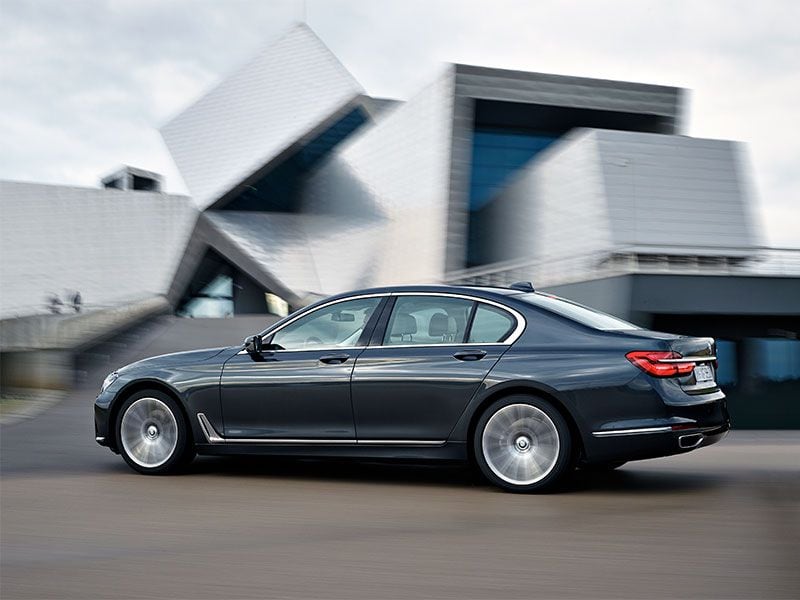
Photo by BMW
Mercedes-Benz S-Class Sedan
While the Mercedes-Benz S-Class Sedan has the highest starting MSRP ($96,600) on our list of vehicles with Autopilot, the technology is not standard. You’ll need to opt for the Driver Assistance option package ($2250) to gain semi-autonomous technology. The package includes DISTRONIC PLUS adaptive cruise control with stop and go, active lane-keep assist, steering assist to center the vehicle in lane, forward brake assist with pedestrian detection, and active blind-spot assist. The optional Night View Assist ($2260) uses Autoliv thermal and infrared camera technology to detect pedestrians and animals after dark. Hazards are shown in an instrument cluster display and pedestrians are alerted with a flash of the S-Class sedan’s LED headlamps.
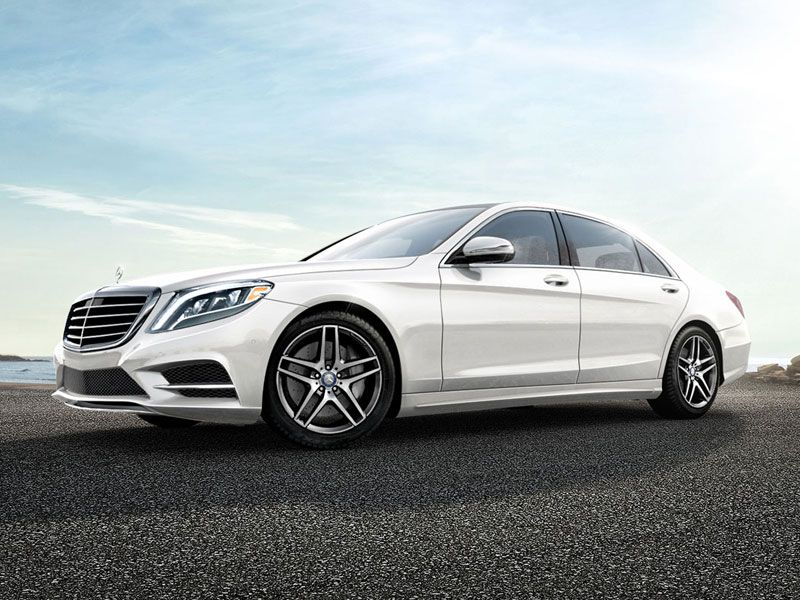
Photo by Mercedes-Benz
Toyota Corolla
With a starting MSRP of $18,500, the Toyota Corolla is the least expensive vehicle in 2017 to offer advanced safety technology as a standard feature. The 2017 Corolla’s standard Toyota Safety Sense (TSS) package includes dynamic radar cruise control, lane-departure alert with steering assist, and a pre-collision system with pedestrian detection, along with automatic high beams. The Corolla is one of the most affordable vehicles to be awarded the Insurance Institute for Highway Safety’s (IIHS) Top Safety Pick+ honors for 2017. The Corolla SE with the 6-speed manual transmission ($21,665) is one of a small number of vehicles offered with semi-autonomous safety technology and a manual gearbox. The Corolla LE Eco ($19,335) is EPA-rated at 30 mpg city/40 mpg highway.
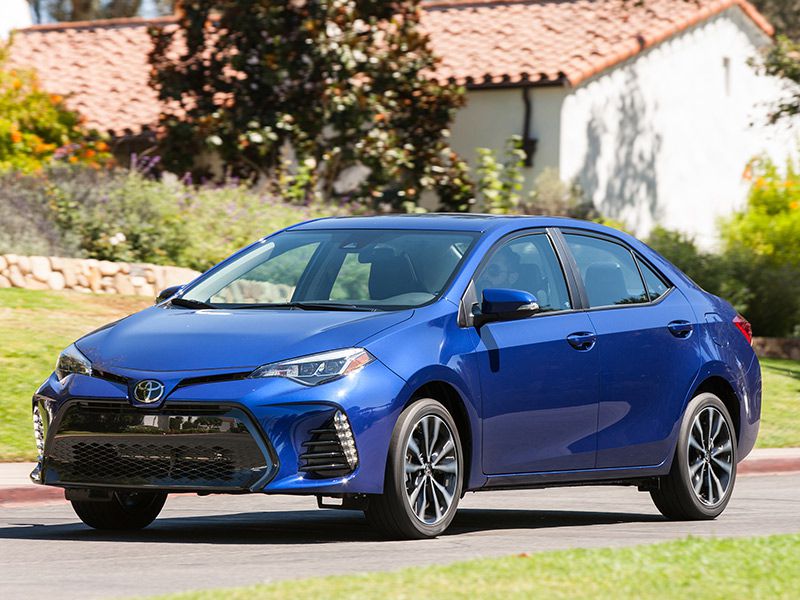
Photo by Toyota
Chevrolet Volt
While the 2017 Chevrolet Volt’s starting MSRP is $33,220, you’ll need to opt for the Volt Premier at $37,750 and add two option packages along with adaptive cruise control ($595) to gain semi-autonomous safety technology. The Driver Confidence option package ($495) includes side blind-zone alert with lane change alert and rear cross-traffic alert. The Driver Confidence II option package ($495) includes active lane-keep assist, and forward collision alert, along with IntelliBeam headlamps. The Insurance Institute for Highway Safety (IIHS) has awarded Top Safety Pick+ honors to the 2017 Chevrolet Volt when equipped with optional front crash prevention. The extended-range electric Volt provides up to 53 miles on a charge and is eligible for a Federal Tax Credit of $7500.
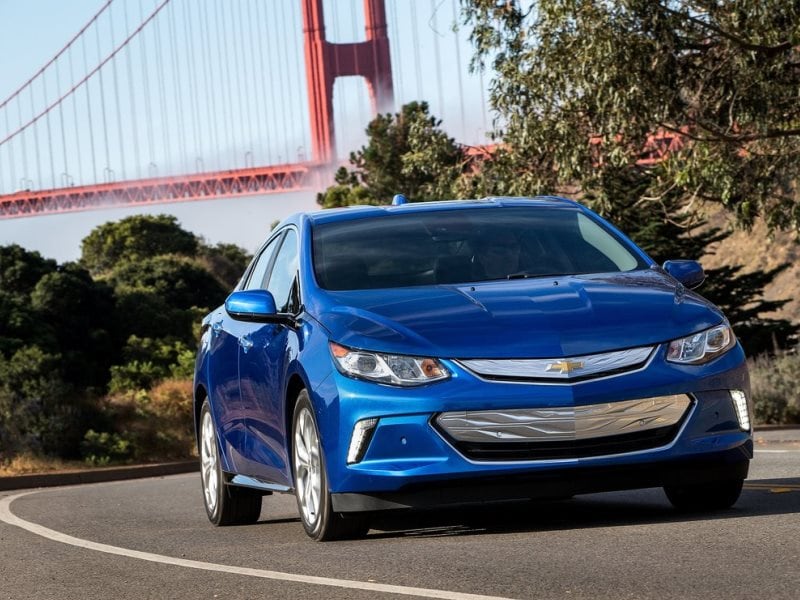
Chrysler Pacifica
The 2017 Chrysler Pacifica is the only minivan to be rated a Top Safety Pick+ by the Insurance Institute for Highway Safety for 2017, earning the rating when equipped with optional front crash protection and specific headlamps. You’ll need to add the Advanced SafetyTec option package to the 2017 Chrysler Pacifica Touring-L Plus and Limited models to gain semi-autonomous safety features. The package includes adaptive cruise control with stop and go, lane-departure warning plus, forward collision warning, advanced brake assist, and ParkSense front/rear park assist, as well as parallel and perpendicular park assist. The 2017 Chrysler Pacifica Hybrid offers Advanced SafetyTec as well and uses plug-in technology to achieve an EPA-estimated 80 mpg-e on the highway.
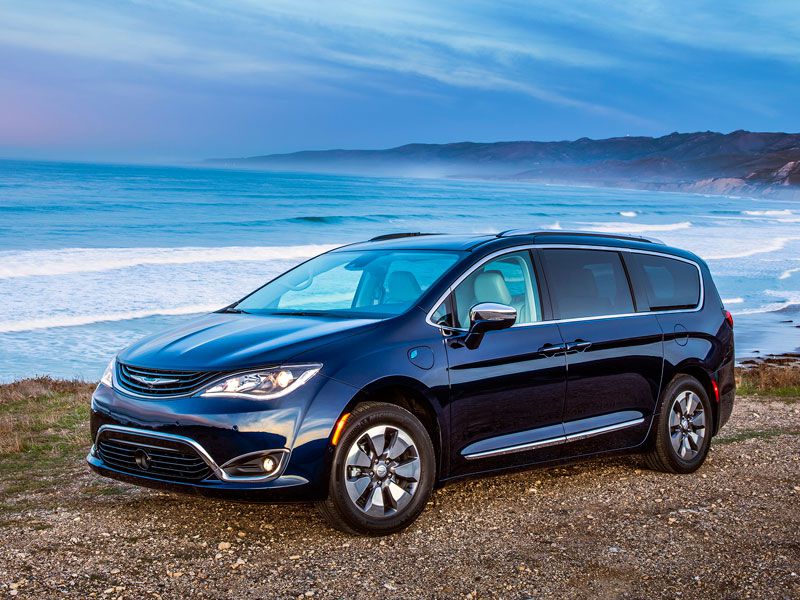
Photo by Chrysler
Honda Accord Hybrid
Honda Sensing safety technology is standard on the Accord Hybrid and Accord Touring. It’s also offered as an option on the Accord LX, Sport, EX, EX-L, and EX-L V-6 models. The Accord Hybrid is EPA rated at 49 mpg city/47 mpg highway and has a starting MSRP of $29,605. Honda Sensing includes adaptive cruise control with low-speed follow, lane-keep assist, road-departure mitigation, and collision mitigation braking. The Insurance Institute for Highway Safety rates the 2017 Honda Accord 4-door sedan as a Top Safety Pick+ when equipped with option front crash prevention and specific headlights. The technology is also offered in the Honda Accord Coupe, Civic, CR-V, Pilot, and Ridgeline.
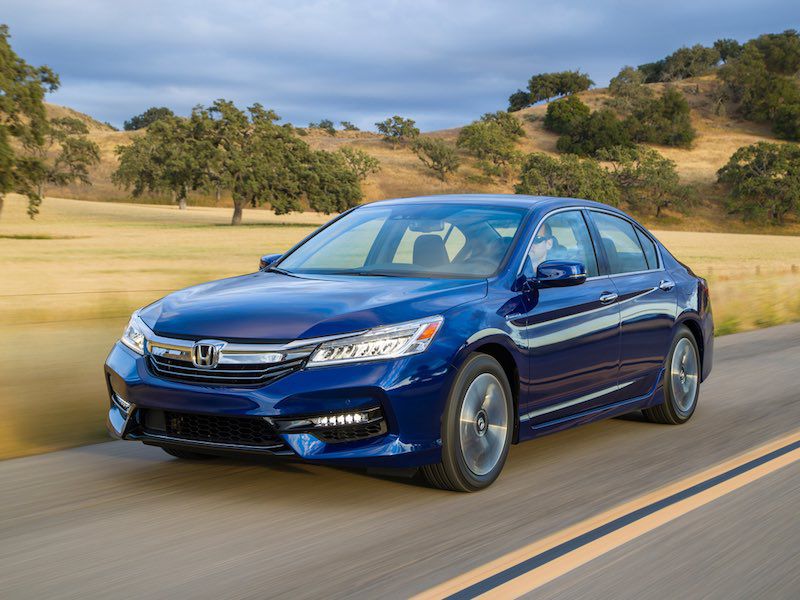
Photo by Honda
Genesis G80
The 2017 Genesis G80 sedan is offered with a 3.8-liter V6 and rear-wheel drive at a starting MSRP of $41,400, while the all-wheel-drive version is priced at $43,900. You’ll need to opt for the Premium option package ($4750) to gain semi-autonomous driving safety technology. The Premium package includes adaptive cruise control with stop and go, automatic emergency braking, lane-keep assist with lane-departure warning, blind-spot detection, and parking sensors. The rear-drive Genesis is also available with a 5.0-liter V8 at a starting MSRP of $54,550, with the semi-autonomous tech as standard equipment. The Insurance Institute for Highway Safety rates the 2017 Genesis G80 sedan as a Top Safety Pick+.
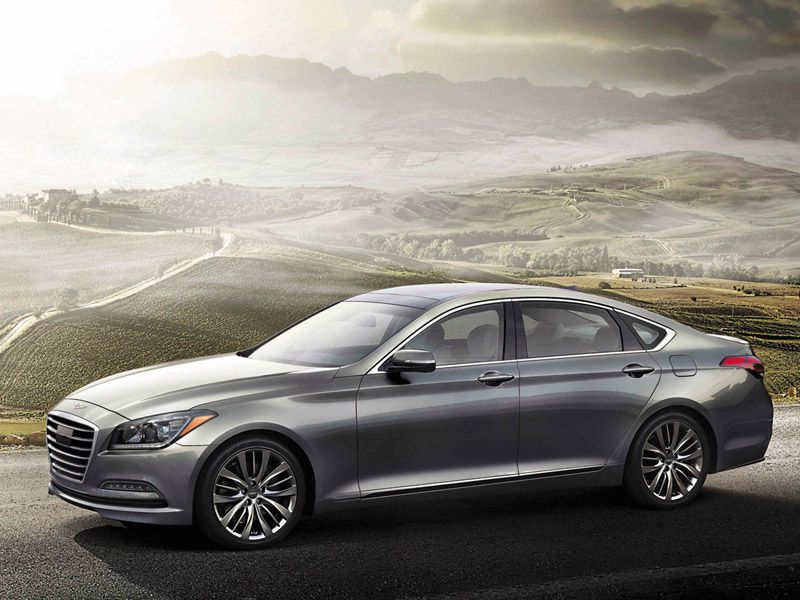
Photo by Genesis
Subaru Legacy
All-wheel-drive (AWD) is of great importance when dealing with adverse winter weather conditions. While the 2017 Subaru Legacy sedan provides AWD as a standard feature at a starting MSRP of $21,995, you’ll need to opt for a higher trim level than the base model to gain access to the optional EyeSight semi-autonomous driver-assist technology package ($1495). EyeSight includes pre-collision braking, lane-keep assist, adaptive cruise control, blind-spot detection, and rear cross-traffic alert. The Insurance Institute for Highway Safety rates the 2017 Subaru Legacy 4-door sedan as a Top Safety Pick+ when equipped with the optional EyeSight technology and HID headlights (optional on the 2.5i Limited and standard on the 3.6R Limited). Note: Lane-keep assist is not operational on snow covered roads.
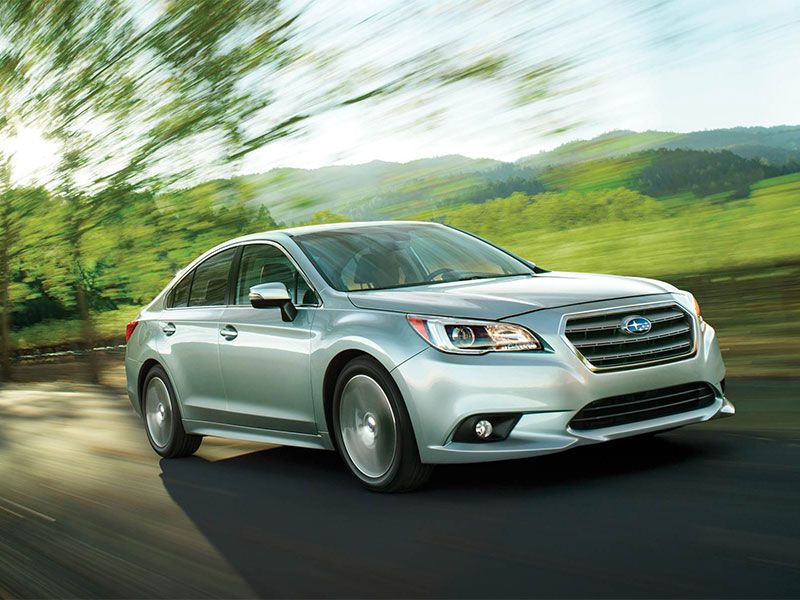
Photo by Subaru
Ford Fusion
The 2017 Ford Fusion is available in a dizzying array of trim levels with conventional and hybrid powertrains. Semi-autonomous driving technology is optional in the mid trim levels (like the Fusion Sport, shown above) and standard at the top-of-the-line Platinum trim levels. Advanced safety technology includes adaptive cruise control with stop and go, pre-collision assist with pedestrian detection, active lane-keep assist, adaptive cruise control with stop and go, blind-spot mirrors, cross-traffic alert, and enhanced active park assist for perpendicular and parallel parking (with park out assist). The Insurance Institute for Highway Safety rates the The 2017 Ford Fusion sedan as a Top Safety Pick.
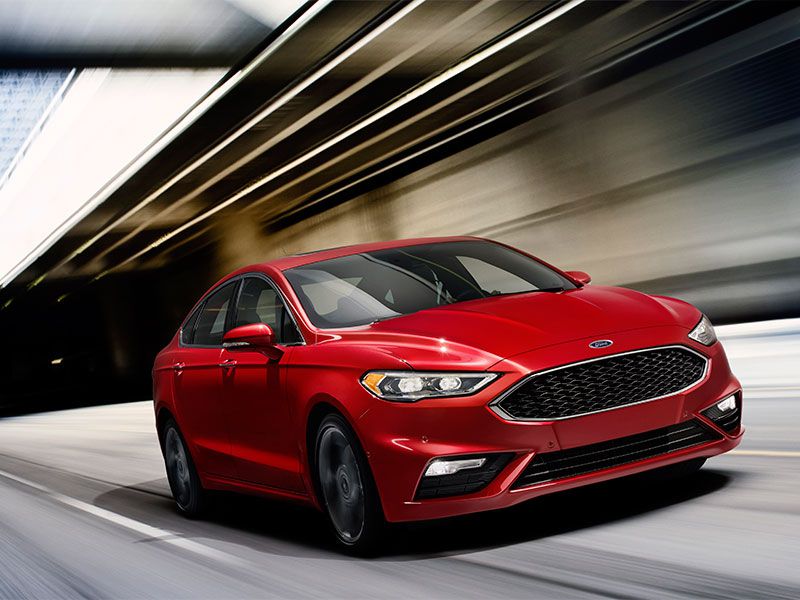
Photo by Ford